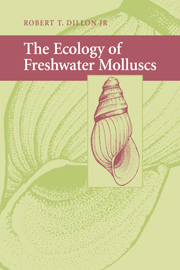4 - Life History
Published online by Cambridge University Press: 11 August 2009
Summary
If natural selection works to maximize the total offspring an individual leaves behind, how can it happen that one perfectly successful population of freshwater bivalves produces, on the average, 10 offspring per parent lifetime, while another produces 106? Life history studies address variation in fundamental demographic parameters such as birth rate (including age at reproduction, clutch size, and developmental time) and survivorship (lifespan, semelparity/iteroparity), as well as the relationship between individual age and size, from propagule to adult. Because the energy available to an organism is finite, life history studies are ultimately concerned with what have come to be called ‘trade-offs’ between parental growth, maintenance, and reproduction, semelparity and iteroparity, propagule size and number, and many other factors. Trade-offs are not inevitable, however, as we shall see.
The efficiency of natural selection on a trait is dependent on its heritability, that portion of the total phenotypic variance that is additively genetic. But the heritability of life history traits generally seems to be less than that observed for morphological, physiological, or even behavioural traits (Price and Schluter 1991). Because selection is expected to act most efficiently on traits as directly tied to fitness as survivorship and reproduction, the numerator of the heritability may be small. And because the expression of such traits is unusually sensitive to the environment, the denominator of the heritability will be large.
- Type
- Chapter
- Information
- The Ecology of Freshwater Molluscs , pp. 117 - 170Publisher: Cambridge University PressPrint publication year: 2000



